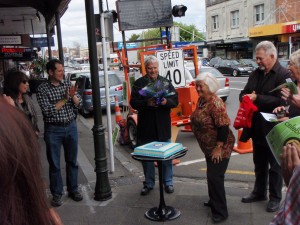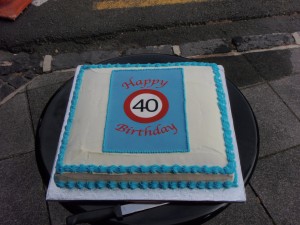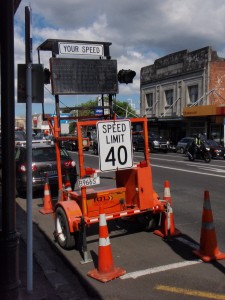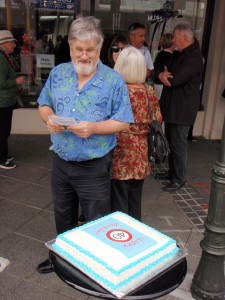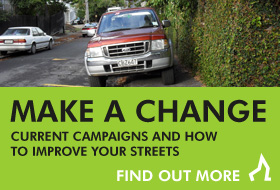A computer generated image of the 2.5km car-free zone on the left bank in Paris, between the Musée d’Orsay, above, and the Pont de l’Alma. Photograph: JC Choblet
It’s the latest battle in Paris’s war on the private car: a pedestrian “reconquest” of the banks of the Seine.
After a slanging match with the right, the city’s Socialist mayor, Bertrand Delanoë has won his quest to break up the two-lane urban motorway that has run along the edge of the Seine since the 1960s, and return Paris’s riverside world heritage sites to walkers and cyclists.
From next month, a stretch of more than 1km (0.6 miles) on the right bank near the Hôtel de Ville will see the first narrowing of the road to make way for pedestrian corridors, riverside walkways, bars and cafes. Then in the spring the final promised masterpiece of pedestrianisation will be unveiled: a 2.5km car-free zone on the left bank, between the Musée d’Orsay and the Pont de l’Alma, with a riverside park, pedestrian promenades, floating botanic gardens, flower-market barges, sports courts, restaurants and even perhaps an archipelago of artificial islands.
The pedestrianisation of one of Europe‘s most picturesque urban riversides means the death knell for the Seine’s non-stop riverside expressways. These were the pride of Georges Pompidou in the 60s when France’s love affair with the car was at its height. Opened in 1967 by him, under the slogan “Paris must adapt the to car”, the dual carriageway with perhaps the best view in France allowed a speedy crossing of Paris from west to east. But environmentalists have long complained it was a dreadful, polluting waste of architectural heritage.
Delanoë promised his new scheme would “give Parisians back their river”, “profoundly change” the city and provide “an opportunity for happiness” for residents. But the mayor, who will not stand for re-election in 2014, also has an eye on his legacy, seeking to be remembered as the man who finally ended Parisian reverence to the car. He has expanded cycle routes and introduced the city’s famous short-term bike-hire and car-hire schemes.
The limiting of cars along the river was foreshadowed by his Paris Plages project, an annual “urban beach” along the Seine which began a decade ago and has been much imitated across Europe. It sees the expressway closed for a month in summer while Parisians reclaim the riverside to put their feet up on giant deckchairs along an artificial stretch of sand with potted palm-trees.
But the pedestrianisation has not been without controversy. This year, the then right-wing prime minister, François Fillon, who was im the running to become a Paris MP and reportedly harboured mayoral ambitions for 2014, announced the state was vetoing the project on the grounds that it was badly thought-out. Delanoë hit back at what he called an electorally inspired, government “diktat” that went against Parisians’ interests. Motorists also complained that traffic in Paris would be hugely upset, with drivers forced to clog alternative routes across the city. Around 2,000 cars an hour use the left-bank expressway during rush hour, according to City hall which argues that motorists would see only six minutes added to their journey under the plans.
The €40m (£31.4m) project was given the go-ahead last month after the new Socialist prime minister, Jean-Marc Ayrault, lifted the block imposed Fillon.



